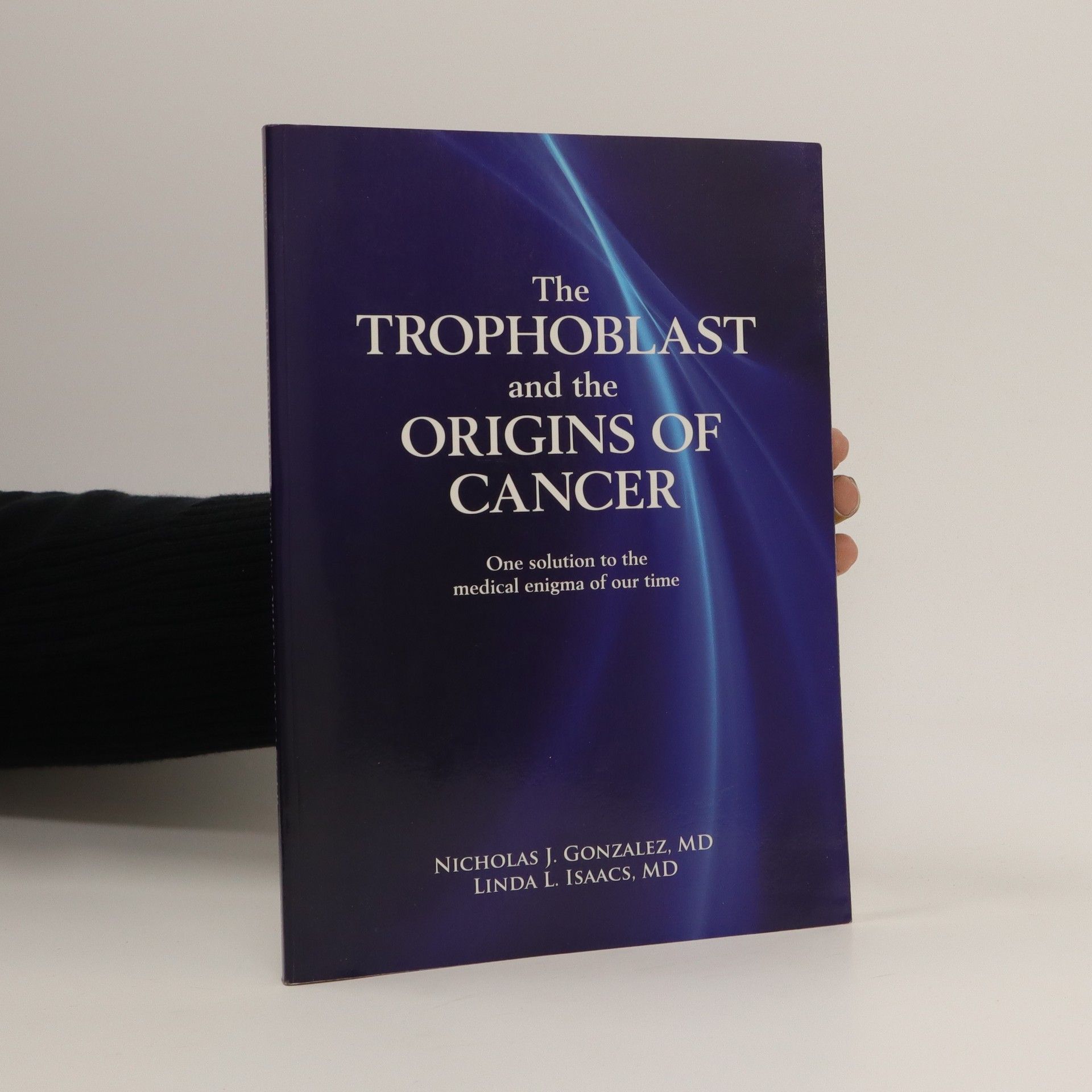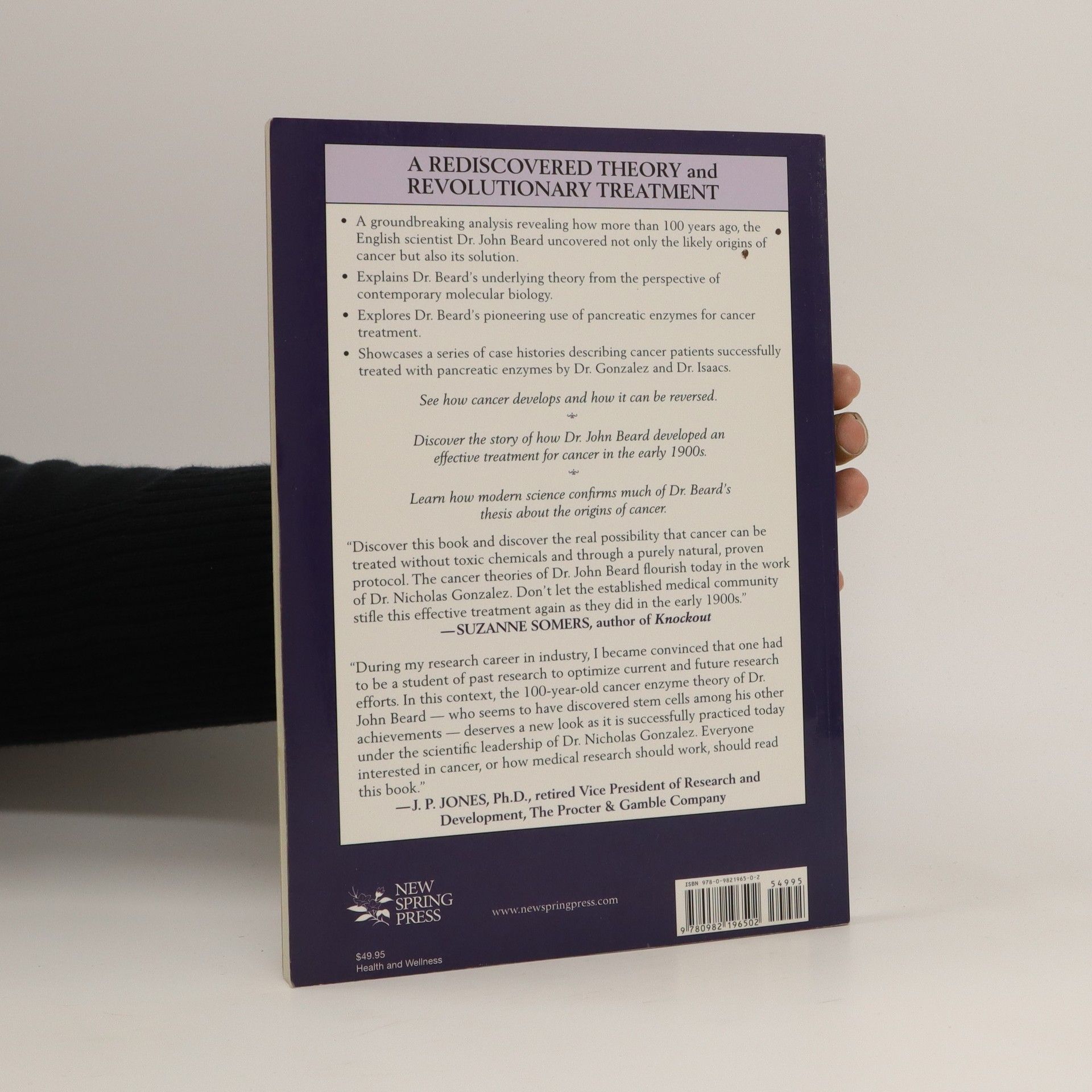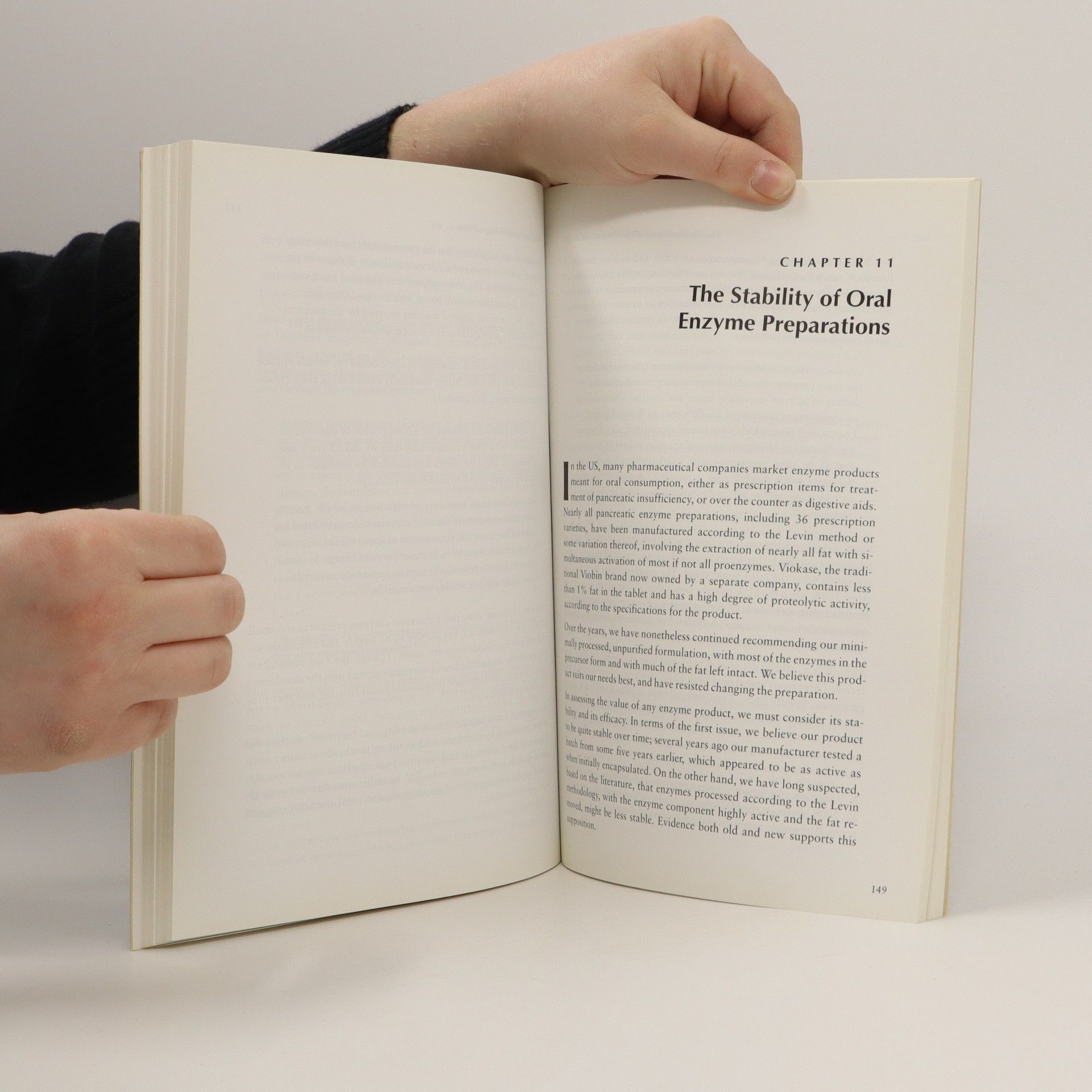The trophoblast and the origins of cancer
Autoren
Parameter
Kategorien
Mehr zum Buch
This groundbreaking analysis reveals how more than 100 years ago, the English scientist Dr. John Beard uncovered not only the likely origins of cancer but also its solution. Dr. Gonzalez explains Dr. Beard's underlying theory and explores Dr. Beard's pioneering use of pancreatic enzymes for cancer treatment. This book also showcases case histories describing cancer patients successfully treated with pancreatic enzymes by the authors. Dr. Beard's achievements, though unappreciated in his own day, are many. A research embryologist by training, he proposed that the early mammalian placenta, or trophoblast, the connection between the embryo and the maternal uterine blood supply, represents an ideal model for the study of malignancy. In its ability to divide rapidly, invade maternal tissues, and generate a blood supply, the trophoblast, Beard reasoned, initially behaves as any growing tumor might. However, the trophoblast differs from malignancy, Beard stated, because at some predetermined point it changes from an invasive tissue into the non-aggressive placenta, necessary for early embryonic life. Beard spent years searching for the key to this remarkable transformation, ultimately discovering that the very day the trophoblast changes character, the embryonic pancreas begins secreting large amounts of enzymes. Beard then proposed that since pancreatic enzymes regulate trophoblast growth, they must represent our main defense against cancer. Subsequently, in animal experiments and in clinical use with human cancer patients, Beard demonstrated pancreatic enzymes could attack and destroy cancerous tumors. In this book, you will read of Dr. Beard's discoveries, and how modern science confirms much of what he long ago proposed. Along the way, you will learn that Dr. Beard discovered stem cells, the focus of much research effort today, though he never received proper credit. And you will see that Dr. Beard may have uncovered the key to the deadly
Buchkauf
The trophoblast and the origins of cancer, Nicholas J. Gonzalez, Linda L. Isaacs
- Sprache
- Erscheinungsdatum
- 2009
Lieferung
Zahlungsmethoden
Deine Änderungsvorschläge
- Titel
- The trophoblast and the origins of cancer
- Sprache
- Englisch
- Autor*innen
- Nicholas J. Gonzalez, Linda L. Isaacs
- Erscheinungsdatum
- 2009
- Einband
- Paperback
- ISBN10
- 0982196504
- ISBN13
- 9780982196502
- Kategorie
- Medizin & Gesundheit, Biologie
- Beschreibung
- This groundbreaking analysis reveals how more than 100 years ago, the English scientist Dr. John Beard uncovered not only the likely origins of cancer but also its solution. Dr. Gonzalez explains Dr. Beard's underlying theory and explores Dr. Beard's pioneering use of pancreatic enzymes for cancer treatment. This book also showcases case histories describing cancer patients successfully treated with pancreatic enzymes by the authors. Dr. Beard's achievements, though unappreciated in his own day, are many. A research embryologist by training, he proposed that the early mammalian placenta, or trophoblast, the connection between the embryo and the maternal uterine blood supply, represents an ideal model for the study of malignancy. In its ability to divide rapidly, invade maternal tissues, and generate a blood supply, the trophoblast, Beard reasoned, initially behaves as any growing tumor might. However, the trophoblast differs from malignancy, Beard stated, because at some predetermined point it changes from an invasive tissue into the non-aggressive placenta, necessary for early embryonic life. Beard spent years searching for the key to this remarkable transformation, ultimately discovering that the very day the trophoblast changes character, the embryonic pancreas begins secreting large amounts of enzymes. Beard then proposed that since pancreatic enzymes regulate trophoblast growth, they must represent our main defense against cancer. Subsequently, in animal experiments and in clinical use with human cancer patients, Beard demonstrated pancreatic enzymes could attack and destroy cancerous tumors. In this book, you will read of Dr. Beard's discoveries, and how modern science confirms much of what he long ago proposed. Along the way, you will learn that Dr. Beard discovered stem cells, the focus of much research effort today, though he never received proper credit. And you will see that Dr. Beard may have uncovered the key to the deadly



